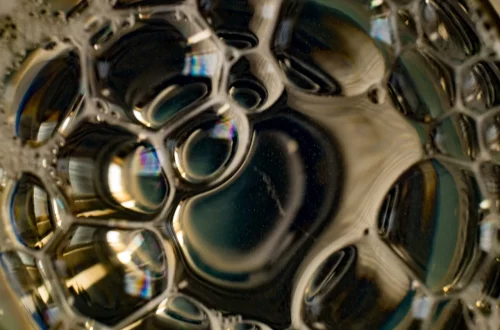
Discover the Benefits of Plant Based Hair Dye for Healthier Hair
In an age where health and wellness are at the forefront of our choices, individuals are becoming increasingly aware of the products they use on their bodies, including hair dye. Traditional hair dyes, while effective in achieving vibrant colors, often contain harsh chemicals that can cause damage to both hair and scalp. As a result, many people are seeking alternatives that are not only gentler but also beneficial for overall hair health. Enter plant-based hair dye, a solution that harnesses the power of nature to provide beautiful, long-lasting color without the drawbacks associated with synthetic dyes.
The shift toward plant-based products reflects a broader trend in the beauty industry, where consumers prioritize natural ingredients over synthetic ones. This movement is not just about aesthetics; it’s about embracing healthier choices that align with a more sustainable lifestyle. Plant-based hair dyes are made from natural sources, such as herbs, flowers, and fruits, which have been used for centuries across various cultures for hair coloring and care. By opting for these dyes, individuals can enhance their hair’s appearance while minimizing exposure to potentially harmful chemicals.
Moreover, the benefits of using plant-based dyes extend beyond just color. These products often come with added nourishing properties that can improve hair texture and shine, making them an appealing choice for those looking to enhance their overall hair health. As we delve deeper into the world of plant-based hair dyes, it becomes clear that these natural alternatives offer a wealth of advantages worth exploring.
The Advantages of Natural Ingredients in Hair Care
One of the most significant benefits of plant-based hair dyes is their reliance on natural ingredients. Unlike conventional dyes, which often contain ammonia, parabens, and other synthetic chemicals, plant-based options utilize botanical extracts that are not only safer for the hair but also more nourishing. Ingredients such as henna, indigo, and chamomile have been cherished for their natural coloring properties and their ability to promote healthy hair.
Natural ingredients in hair dyes can provide various benefits. For instance, henna is known for its ability to strengthen hair strands and enhance shine. It coats the hair shaft, creating a protective barrier that helps reduce damage from environmental factors. This means that not only are you coloring your hair, but you’re also investing in its health.
Furthermore, many plant-based dyes are rich in vitamins and minerals that nourish the scalp. Ingredients like aloe vera and coconut oil are often included in formulations, providing hydration and promoting a healthy scalp environment. A well-hydrated scalp is essential for healthy hair growth, making plant-based dyes a two-in-one solution for those looking to improve their hair’s health while achieving desired color.
Additionally, plant-based hair dyes are often less likely to cause allergic reactions compared to their chemical counterparts. Many individuals experience sensitivity or allergic reactions to synthetic hair colorants, which can lead to discomfort and irritation. By choosing a plant-based option, users can significantly reduce the risk of adverse reactions, making it a safer choice for those with sensitive skin.
In summary, the advantages of natural ingredients in hair care are manifold. From enhancing hair health to reducing the risk of allergic reactions, plant-based hair dyes offer a holistic approach to hair coloring that aligns with the growing demand for safer, more sustainable beauty products.
Long-Lasting Color Without Harsh Chemicals
A common misconception about plant-based hair dyes is that they may not provide the same level of vibrancy or longevity as traditional dyes. However, this is far from the truth. Many plant-based dyes can deliver stunning, rich colors that rival those achieved by synthetic options, all while being free from harsh chemicals.
The longevity of plant-based hair color can be attributed to the way these dyes work. Unlike conventional dyes that penetrate the hair shaft with chemical reactions, many plant dyes work by coating the hair. This method allows for a more gradual fading process, which can be less noticeable than the abrupt color changes often seen with chemical dyes. As a result, users can enjoy their chosen color for a more extended period without the harsh regrowth lines commonly associated with traditional dyes.
Moreover, the absence of harsh chemicals means that the hair remains in better condition after coloring. Users often report that their hair feels softer and looks shinier after using plant-based dyes, which can enhance the overall appearance of their locks. This is particularly beneficial for individuals who frequently color their hair, as traditional dyes can lead to dryness and damage over time.
Additionally, the fading process of plant-based dyes is often more subtle, allowing for a more natural transition between colors. This characteristic can be particularly appealing for those who prefer low-maintenance hair care routines. Regular touch-ups can be scheduled based on personal preference rather than the need to address visible regrowth caused by chemical dyes.
Overall, plant-based hair dyes offer long-lasting color without compromising hair health. By opting for natural alternatives, individuals can achieve beautiful results while maintaining the integrity of their hair, making it a compelling choice in today’s beauty landscape.
Environmental Impact and Sustainability
The environmental impact of beauty products is a growing concern among consumers. Many are actively seeking out brands that prioritize sustainability and eco-friendliness. Plant-based hair dyes not only cater to this demand but also provide a more responsible choice for those looking to reduce their carbon footprint.
One of the key benefits of plant-based dyes is that they are often derived from renewable resources. Natural ingredients can be sourced sustainably, minimizing the environmental degradation associated with synthetic chemical production. Furthermore, the manufacturing processes for plant-based products tend to be less harmful to the environment, as they often involve fewer pollutants and waste.
In addition to being better for the planet, many brands that produce plant-based hair dyes are committed to ethical sourcing and fair trade practices. This means that consumers can feel good about their purchases, knowing that they are supporting companies that prioritize social and environmental responsibility. Many brands also avoid animal testing, aligning with the values of cruelty-free consumers.
Another aspect of sustainability is packaging. Many plant-based hair dye brands are moving toward eco-friendly packaging options, further reducing their environmental impact. By choosing products that use recyclable or biodegradable materials, consumers can contribute to a more sustainable beauty industry.
In conclusion, the environmental benefits of plant-based hair dyes extend beyond the ingredients themselves. They represent a more sustainable choice in hair care that reflects consumers’ growing desire for eco-friendly products. By opting for these dyes, individuals can enjoy beautiful hair while supporting practices that protect the planet.
How to Choose the Right Plant-Based Hair Dye for You
Choosing the right plant-based hair dye can seem daunting, especially given the variety of options available on the market. However, by considering a few key factors, you can find the perfect product that meets your needs and preferences.
First and foremost, it’s essential to consider your hair type and color. Different plant-based dyes work best on specific hair types, so it’s crucial to do your research. For instance, henna is an excellent choice for those with darker hair, as it can enhance and deepen existing tones. Conversely, lighter hair may benefit from dyes that contain chamomile or saffron, which can add subtle highlights.
Another critical factor is the desired color outcome. Plant-based dyes often come in various shades, so it’s essential to select a product that aligns with your color goals. Many brands offer color charts to help visualize the results on different hair types, which can be incredibly helpful in making your selection.
You should also consider the ingredients list. While plant-based dyes are typically made from natural ingredients, it’s still essential to check for any additives or preservatives that may not align with your preferences. Opt for products that prioritize transparency and provide detailed information about their ingredients.
Additionally, consider the application process. Some plant-based dyes may require more time and effort to apply compared to traditional dyes. Be sure to read the instructions carefully and prepare for the application process accordingly. If you’re new to hair coloring, you might want to start with a semi-permanent option that allows for easy touch-ups.
Lastly, it’s helpful to read reviews and testimonials from other users. This can provide valuable insights into the product’s effectiveness and ease of use. Many brands also offer sample sizes, allowing you to test a color before committing to a full-size product.
By considering these factors, you can confidently choose the right plant-based hair dye for your hair care routine, ensuring a beautiful and healthy result.
In conclusion, plant-based hair dyes present a compelling alternative to traditional hair coloring methods. With their numerous benefits, including natural ingredients, long-lasting color, and a reduced environmental impact, it is clear why they are becoming increasingly popular among consumers. Remember, though, that while this article provides valuable information regarding hair dyes, it is not a substitute for medical advice. Always seek the guidance of a healthcare professional for any health-related concerns.




